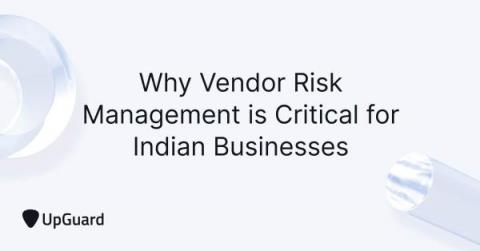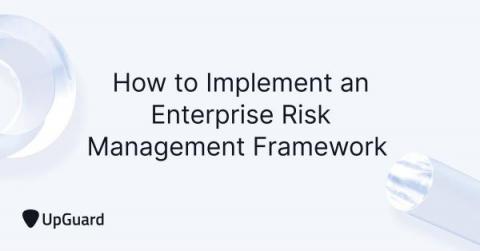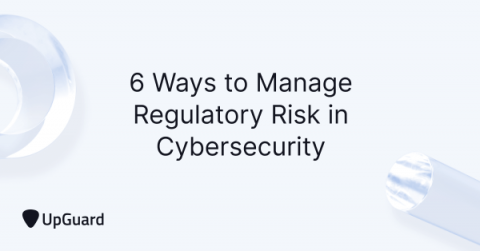Security | Threat Detection | Cyberattacks | DevSecOps | Compliance
Risk Management
UpGuard Vendor Risk Matrix Demo // Annie Luu, Product Marketing Manager
Panel Discussion // UpGuard Summit August 2022
Why Vendor Risk Management is Critical for Indian Businesses
Few Indian businesses are included in the ever-increasing list of major data breaches. But data suggests that this streak of luck could soon be reaching its end. Increasing third-party security risks and a deficiency of security controls addressing them create the perfect conditions for a large-scale global supply chain attack facilitated by breached Indian business.
UpGuard Vendor Attributes Demo // Harsh Budholiya, Product Marketing Lead
UpGuard Product Spotlight // Dan Bradbury, Chief Product Officer
UpGuard Reporting Improvements Demo // Chris Schubert, Senior Product Manager
How to Implement an Enterprise Risk Management Framework
Managing individual business risks is difficult when silos exist. An enterprise risk management (ERM) framework consolidates risk management strategy across an entire organization, enabling better visibility, measurement, and management of business objectives. With a unified focus on addressing risk, compliance teams can universally improve regulatory compliance, governance, and risk management processes.
Automation of Risk and Security Compliance Is No Longer a Choice
6 Ways to Manage Regulatory Risk in Cybersecurity
Keeping up with ever-changing regulatory requirements for cybersecurity can prove difficult for many organizations, which may unknowingly become non-compliant if they fail to adapt to new laws and regulations. Healthcare organizations and financial services must be even more vigilant with compliance. Both sectors are subject to even stricter requirements due to the large quantities of personally identifiable information (PII) they manage.











